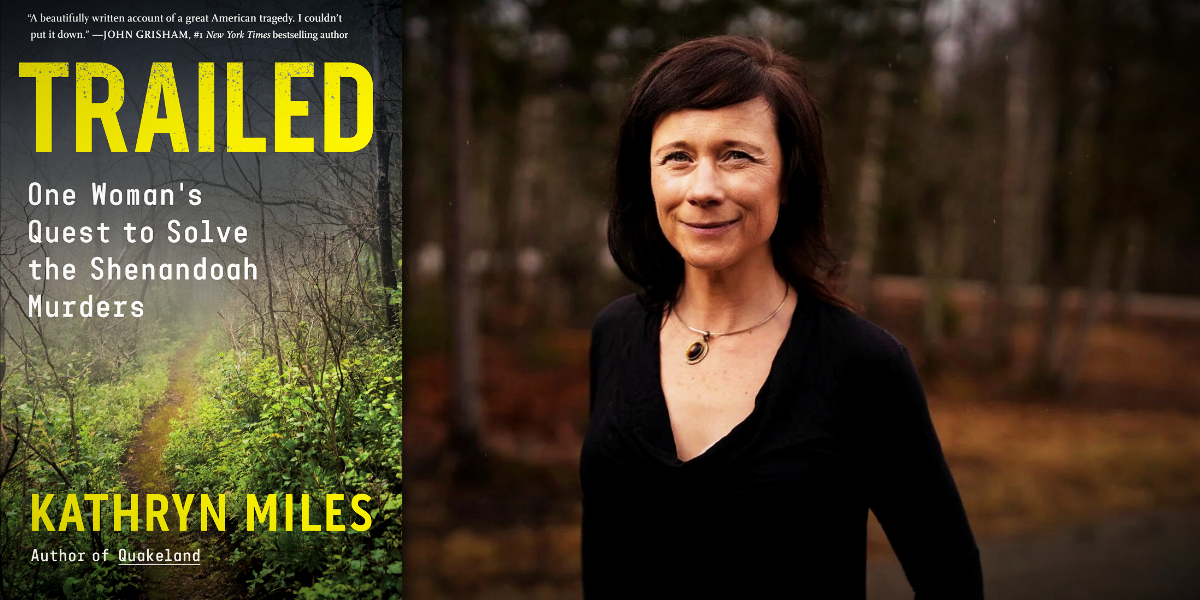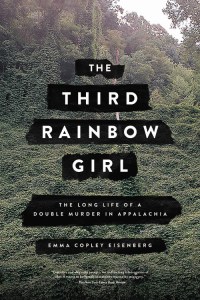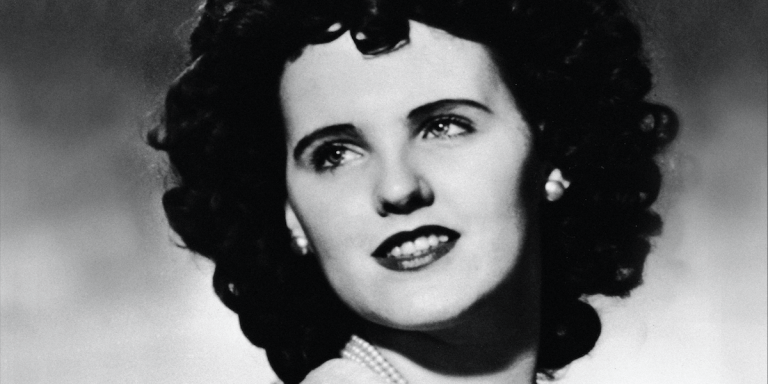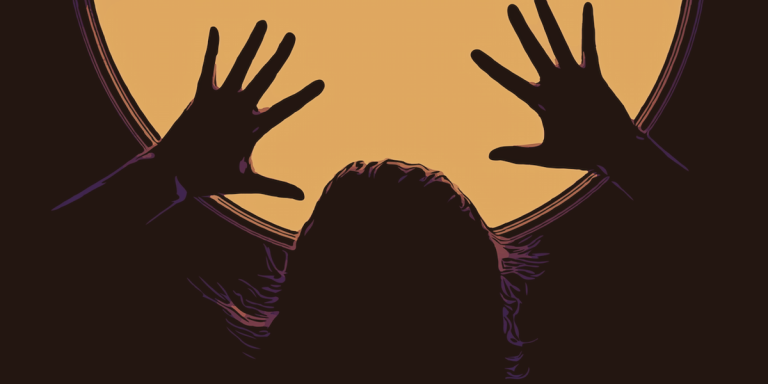Trailed Author Kathryn Miles’ True Crime Favorites
 Writing good true crime is hard, taxing work. Few authors (or investigators, for that matter) revel in the prospect of scanning crime scene photos and autopsy reports or asking survivors to relive the most painful moment of their lives. Along the way, the human aspect of victims—their subjectivity and agency, their personalities and unique features—can often become eclipsed by extended attention to their killers. That trend strikes me as problematic for multiple reasons. It’s true that, like a lot of true crime devotees, I find the psychology of criminals endlessly fascinating. But in my own work as a journalist, I have found that the most compelling stories are often those of the people most impacted by those crimes. To really understand the nature of violent crime, we must also bear witness to the residual trauma it leaves in its wake.
Writing good true crime is hard, taxing work. Few authors (or investigators, for that matter) revel in the prospect of scanning crime scene photos and autopsy reports or asking survivors to relive the most painful moment of their lives. Along the way, the human aspect of victims—their subjectivity and agency, their personalities and unique features—can often become eclipsed by extended attention to their killers. That trend strikes me as problematic for multiple reasons. It’s true that, like a lot of true crime devotees, I find the psychology of criminals endlessly fascinating. But in my own work as a journalist, I have found that the most compelling stories are often those of the people most impacted by those crimes. To really understand the nature of violent crime, we must also bear witness to the residual trauma it leaves in its wake.
When I began to write Trailed: One Woman’s Quest to Solve the Shenandoah Murders, I knew I wanted to include a fully fleshed and empathetic account of Julie Williams and Lollie Winans, the victims of that double murder. Both women were not only skilled backcountry leaders, but also generous and passionate advocates for social and environmental change. They fell in love while working at an outdoor program that focused on holistic wilderness experiences for women and girls. That backstory became the scaffolding on which to tell the story of their murder and why that crime continues to haunt so many people. As part of my research for Trailed, I dove headlong into the true crime genre to see how other writers managed to foreground the lives of victims and the legacies they left behind. Here are a few of my favorites:
Few other books have had the lasting impact on me as Brenner’s heart-wrenching account of being shot while backpacking off the Appalachian Trail. Her partner, Claudia Wight, died in the attack. Brenner, who was badly wounded, somehow managed to hike several miles for help. But that was just the beginning of her ordeal. Eight Bullets recounts the challenges LGBTQ+ individuals face when navigating the legal system and the lasting impacts hate crimes have both on subordinate social groups and their access to the American landscape.
McGivney’s research spans entire continents as she traces the story of Tomomi Hanamure, a young Japanese woman and avid hiker who travelled to the greater Grand Canyon region in celebration of her birthday. While hiking on the Havasupai Indian Reservation, Hanamure was brutally murdered by a member of that community. McGivney deftly relates not only Hanamure’s death and its aftermath, but also the uneasy tension that non-native tourism has created on tribal lands. Equally as compelling is McGivney’s frank account of the toll this book project took on her own emotional well-being and her struggles to reckon with her own history of abuse.
In 1980, two young women were murdered in rural West Virginia while hitchhiking their way to a counterculture festival. In the years that followed, the ongoing murder investigation cleaved the Appalachian community, shining a spotlight on the dangerous bias prompted by class differences and regional stereotypes. Eisenberg brings that bias to the fore and deftly narrates the long-standing impact crimes have not just on victims and their families, but also the communities where that violence takes place. Along the way, she holds a mirror up to our own preconceived notions and prejudices, and how both can compromise the quest for truth.
While cycling through central Oregon, Terri Jentz and her roommate, Shayna Weiss, were brutally assaulted at a remote campground. No one was ever charged for the crime. Over a decade later, Jentz returns to the small desert town looking for answers. What she finds is a town both rocked by and complicit in the violent attack: one that both continues to live the shame of knowing two visitors were nearly killed in their midst while also knowingly allowing the assailant to continue living and working amongst them. In addition to confronting the pervasiveness of toxic masculinity and its impacts on gender expression, Jentz must also ultimately decide whether or not to confront her actual assailant as well.
A reporter for the Washington Post, Hesse was assigned to cover the trial of a man accused of setting dozens of abandoned buildings ablaze in a struggling community on Virginia’s Eastern Shore. The accused individual pled guilty, and in his confession, Hesse found a much larger narrative about the impacts of economic decline on American communities and just how wide a debris field tragedy can leave in those fragile places. As an unexpected and very welcome twist, Hesse also explores the ways in which uncertainty and even crisis can bring out the best in us and restore a sense of humanity and belonging, especially when we last expect it.
At first glance, Bazelon’s reportage on the state of the American legal system may seem a strange choice for a true crime list. But it’s a testament to Bazelon’s remarkable story telling abilities that this deeply researched investigation reads like a suspense-driven novel. By narrating the parallel stories of multiple people indicted for the same crime, Bazelon reveals the flaws in our judicial process, the nearly unchecked power of prosecutors (the vast majority of whom are white), and how we continue to fail not only victims, but also those charged with a crime.
About the Author
Kathryn Miles is the author of five books. Her essays and articles have appeared in publications such as Audubon, Best American Essays, Best American Sports Writing, the BostonGlobe, the New York Times, Outside, Politico, and Time. A contributing editor at Down East magazine, Miles also serves as a scholar-in-residence for the Maine Humanities Council and as a faculty member in several MFA programs. Her website is www.kathrynmiles.net.
In May 1996, two skilled backcountry leaders, Lollie Winans and Julie Williams, entered Virginia’s Shenandoah National Park for a week-long backcountry camping trip. The free-spirited and remarkable young couple had met and fallen in love the previous summer while working at a world-renowned outdoor program for women. During their final days in the park, they descended the narrow remnants of a trail and pitched their tent in a hidden spot. After the pair didn’t return home as planned, park rangers found a scene of horror at their campsite, their tent slashed open, their beloved dog missing, and both women dead in their sleeping bags. The unsolved murders of Winans and Williams continue to haunt all who had encountered them or knew their story.
When award-winning journalist and outdoors expert Kathryn Miles begins looking into the case, she discovers conflicting evidence, mismatched timelines, and details that just don’t add up. With unprecedented access to crucial crime-scene forensics and key witnesses—and with a growing sense of both mission and obsession—she begins to uncover the truth. An innocent man, Miles is convinced, has been under suspicion for decades, while the true culprit is a known serial killer, if only authorities would take a closer look.
By clicking 'Sign Up,' I acknowledge that I have read and agree to Hachette Book Group’s Privacy Policy and Terms of Use
What to Read Next






